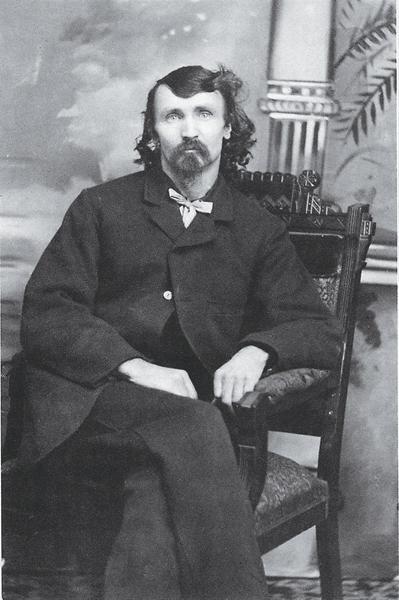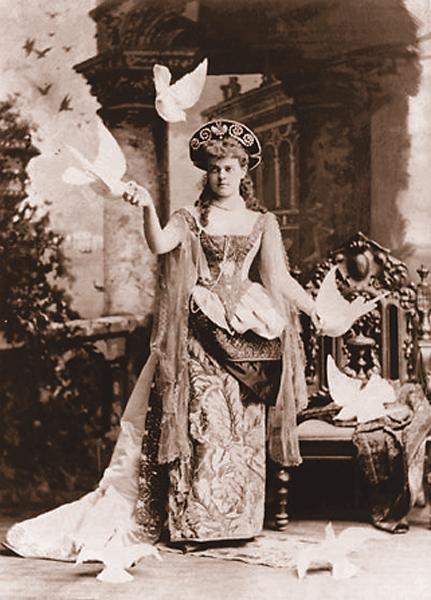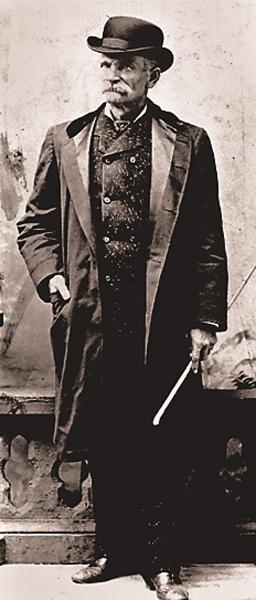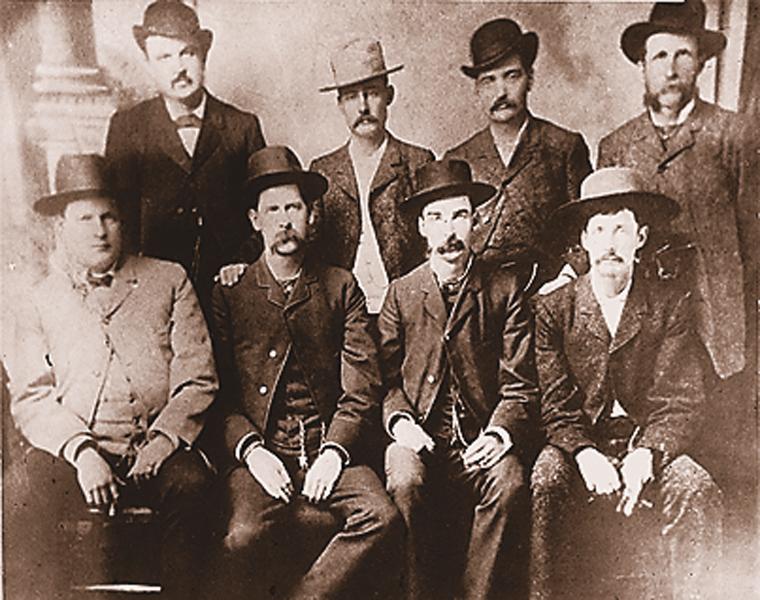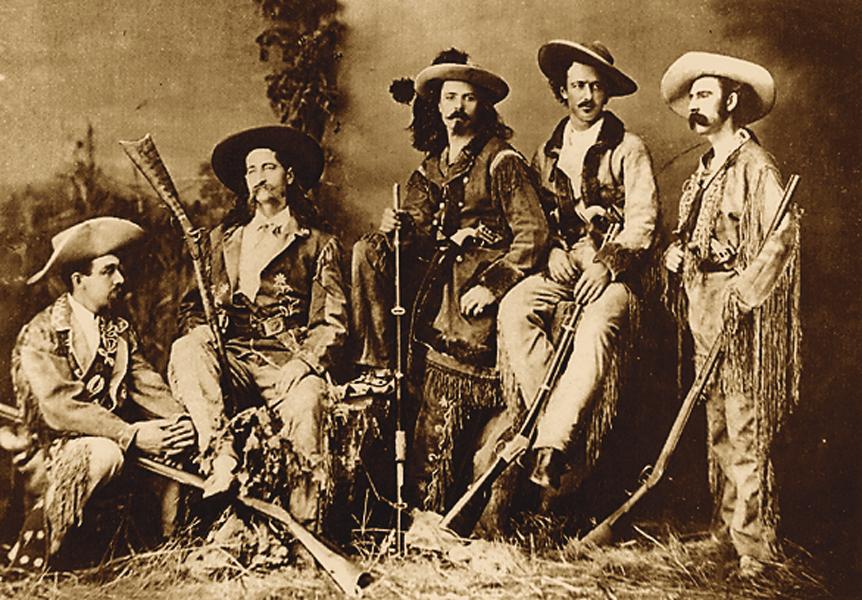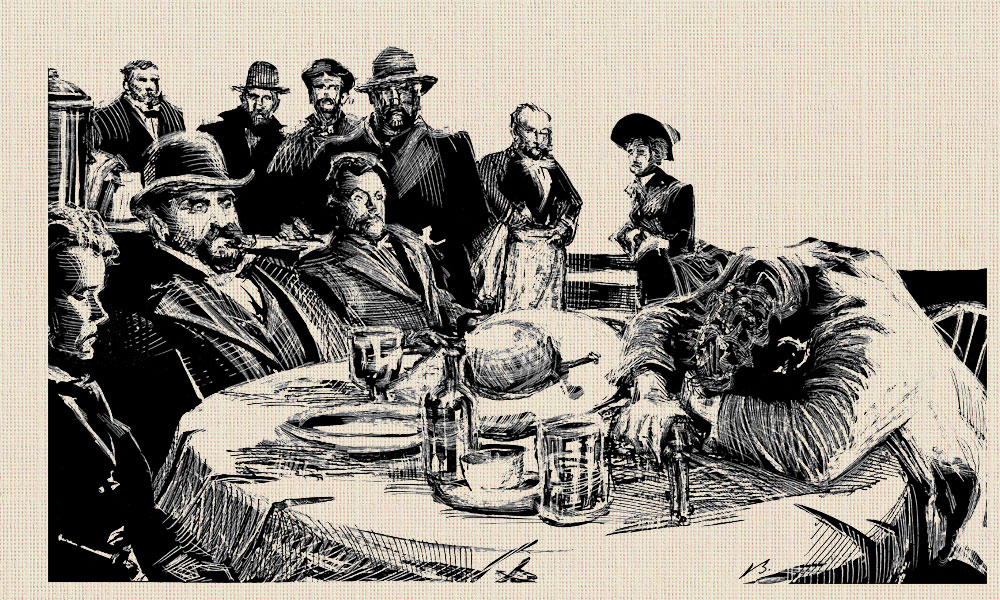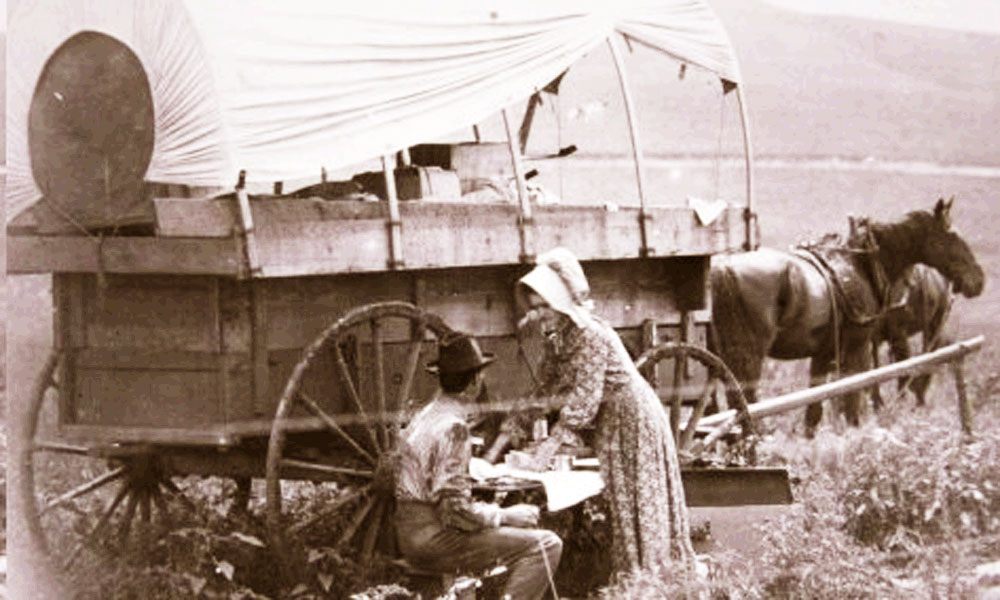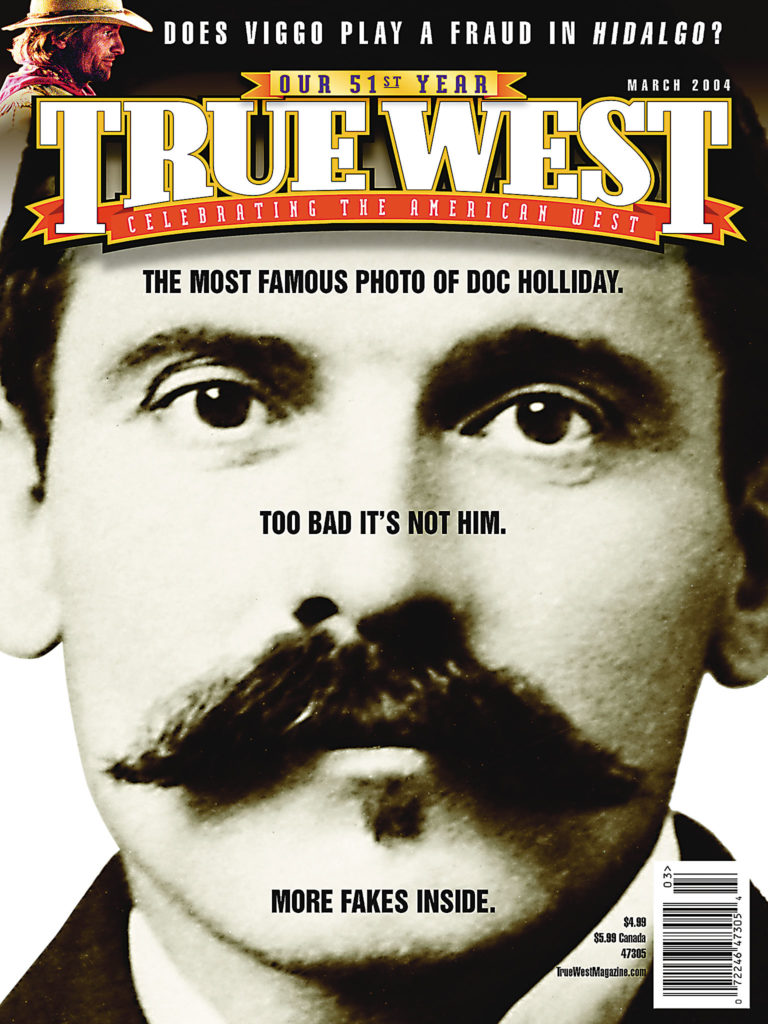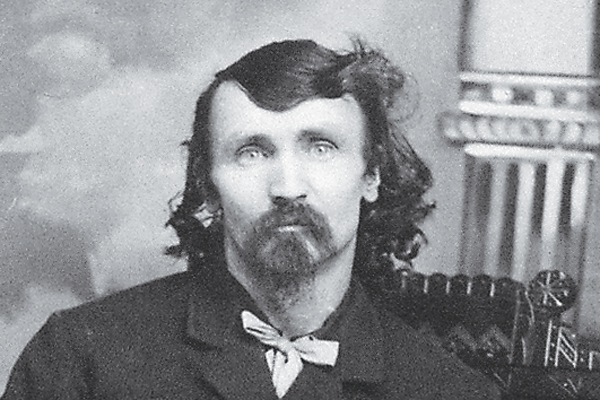 It was one of the most outrageous quotes of the Old West about one of the most barbaric crimes.
It was one of the most outrageous quotes of the Old West about one of the most barbaric crimes.
In 1883, a 34-year-old tracker named Alferd Packer faced a judge and jury in Lake City, Colorado, as the only man in the United States ever charged with the crime of cannibalism.
At his sentencing, Judge Melville B. Gerry was said to declare: “Stand up, you voracious, man-eating son of a bitch, stand up! There was seven democrats in Hinsdale County and you up and ate five of them. God damn you, I sentence you to be hanged by the neck until you are dead, dead, dead, as a warning against reducing the democratic population of our state!”
Just reading the quote can transport you into a packed, crude courthouse in a backwater place; you can imagine the nodding heads and looks of satisfaction.
Too bad the quote is a fake.
Tracking down the truth
Yes, there really was an Alferd Packer (who is often called Alfred) and he really did kill five men and eat part of their bodies. And yes, there really was a Judge Gerry who sentenced him to hang.
But the only part of that quote we are absolutely certain the judge uttered was, “until you are dead, dead, dead.”
The clerk of the Hinsdale County Court tells True West that the official entry in the record book includes those words, but otherwise, is a pretty straight-forward decree that Packer was to hang on the 19th day of May, 1883.
But an old clipping from the Rocky Mountain News reported the judge had a lot more to say. The lengthy story appeared under a stack of headlines that included: “THE HUMAN HYENA … Alfred Packer, the San Juan Man-Eater … After a Fair, Impartial and Honorable Trial … The Solemn Sentence Most Eloquently Pronounced.”
The newspaper quoted Judge Gerry as saying: “A jury of twelve honest citizens of the county have sat in judgment on your case, and upon their oaths they find you guilty of wilful and premedicated murder, a murder revolting in all its details.
“In 1874 you, in company with five companions, passed through the beautiful mountain valley where stands the town of Lake City. At that time the hand of man had not marred the beauties of nature—the picture was fresh from the hand of the Great Artist who created it. You and your companions camped at the base of a grand old mountain, in sight of the place where you now stand, on the banks of a stream as pure and beautiful as ever traced by the finger of God upon the bosom of earth.
“Your every surrounding was calculated to impress upon your heart and nature the omnipotence of Deity, and the helplessness of your own feeble life. In this goodly favored spot you conceived your murderous designs.”
Judge Gerry went on for some time, admonishing Packer for his unimaginable crime.
Gold-seekers find bloody end
Packer had hired on as a guide for a group of 21 men from Provo, Utah, to Breckenridge, Colorado, in search of gold. Along the way, as things got rough, the group split, and Packer told the five men in his care that he knew a shortcut. But there was no shortcut, and he alone would walk out of the mountains, fit and healthy—except for missing two front teeth—and claiming the five men had left him behind when he hurt his leg. He did look too healthy for someone who claimed to have survived as best he could, but it wasn’t until he was seen carrying, not one, but two men’s pocketbooks, that people really started getting suspicious.
Eventually, the townspeople found the camp below Lake San Cristobal where the bodies of the five men lay—four in a row, one a ways apart, all their skulls split open by a hatchet and one also shot in the back. And they found strips of human flesh.
Packer escaped before he could be brought to trial and wasn’t found for nearly a decade. When he was captured, a jury convicted him, even though, to the very end, he proclaimed his innocence. It was late in the day when Judge Gerry finally sentenced him in a packed courtroom where “a profound silence prevailed,” so still that “the ticking of the clock was plainly heard,” the News reported.
Judge Gerry, issuing the first death sentence ever imposed in Hinsdale County, declared that between the hours of 10 a.m. and 3 p.m. on May 19, 1883, Alferd Packer would be “hung by the neck until you are dead, dead, dead.”
Sourcing the quote
So how did the judge’s moving prose become the crude and outrageous quote that has so often been cited?
Tracing back through the quote’s use over the years, in articles and books, it appears that it came from a barkeep and former acquaintance of Packer’s named Larry Dolan. He told it to a reporter named Wilson Rockwell, who then printed it in Sunset Slope.
Escaping the hangman’s noose
Alas, Packer did not swing until he was dead, dead, dead. He actually got a new trial. Since Hinsdale County did not exist when the crime was committed, it was deemed that authorities there had no right to put Packer on trial. The Colorado Supreme Court ruled on his appeal that the government couldn’t hang a person for committing a crime before Colorado became a state. So he got a second trial, where the findings were the same, and he was finally sentenced to 40 years in prison.
In 1901, Packer was paroled by Gov. Charles Thomas. He lived out his life in Littleton, Colorado, where he died 10 years later. (The town would gain notoriety for another heinous crime almost nine decades later, when two high school boys opened fire on their classmates at Columbine High School.)
Packer’s name and legacy lives on. Phil Ochs memorialized him in “The Ballad of Alferd Packer,” which goes: “Their guide was Alferd Packer, / And they trusted him too long, / For his character was weak, / And his appetite was strong.”
In 1996, Trey Parker, of South Park fame, directed a raunchy spoof of Packer’s story, Cannibal! The Musical. (In the credits, Parker uses the handle Juan Schwartz, similar to the alias John Schwartze, which was used by Packer while he was in hiding.)
The plateau above Lake San Cristobal has been christened “Cannibal Plateau.”
Even more telling is that students at the University of Colorado in Boulder named their cafeteria “Alferd E. Packer Memorial Grill,” and the university still holds an annual festival in Packer’s name, which includes a raw meat-eating contest.
Building the American West
1883
The Union Pacific Railroad, directly and through partially-owned subsidiaries, controls 3,600 miles of rail tracks in the American West.
January 16
Pendleton Act is enacted, reforming civil service.
January 22
In Nevada, Wells Fargo messenger Aaron “Hold the Fort” Ross becomes a hero when he survives repeated attempts by five outlaws trying to get into the express car he is guarding.
February 5
The Southern Pacific Railroad completes its “Sunset Route” from New Orleans to San Francisco.
March 3
With its wooden ships, the nation ranks only 12th among naval powers, and so Congress authorizes construction of three metal cruisers for what will be known as the Steel Navy.
March 26
Alva, wife of railroad magnate William Vanderbilt, hosts what many believe to be the most lavish private party in American history at their home in New York City. Total bill: $250,000 (more than $3 million today).
May 1
Buffalo Bill stages his first “Wild West” show. Gen. George Crook crosses into Mexico in pursuit of Geronimo.
May 24
New York City opens the Brooklyn Bridge.
June 5
Wyatt Earp and Bat Masterson reach Dodge City, Kansas, to support Luke Short. While in town, they sit for their famous “Peace Commission” photo.
August 1883
President Chester A. Arthur and other government dignitaries visit Yellowstone National Park. Arthur is the first president to visit the park.
November 3
The Supreme Court rules that Indians are “aliens” and dependents of the U.S. government.
November 17
Black Bart pleads guilty for robbing a stagecoach near San Andreas, California, and is sentenced to six years in prison.
November 18
The United States adopts the railroads’ standardized time, henceforth dividing the nation into four time zones: Eastern, Central, Mountain and Pacific.
December 8
Five so-called cowboys rob the Goldwater and Castenada Store in Bisbee, Arizona, and shoot up the town, killing four citizens in the process. It becomes known as the Bisbee Massacre.
Terrell Bowers contributed to this article. He once lived and traveled the area around where the Packer incident occurred, before moving to Utah, and he is the author of over 60 Western novels worldwide.
Photo Gallery
– Courtesy Robert G. McCubbin –


